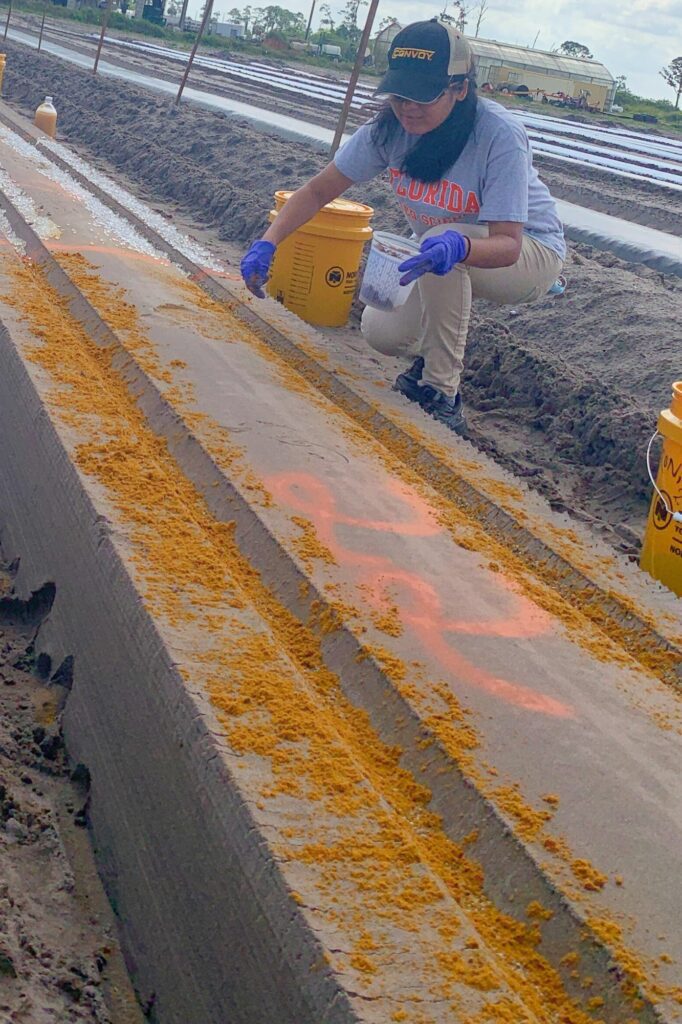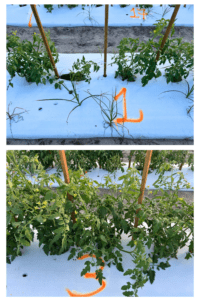Oct 30, 2024UF research shows herbicide plus fertilizer equals fewer weeds, more tomatoes
A combination of herbicide and fertilizer can prevent the nasty nutsedge weed from harming tomatoes, new University of Florida research shows. That, in turn, should mean more of the fruit being sold in the marketplace.
An increase or decrease in tomato production is critical because it’s a $400 million-a-year industry in Florida, according to a news release from the University of Florida/Institute of Food and Agricultural Sciences (UF/IFAS).
Growers want to control nutsedge, which can severely damage their crop.
“Nutsedge is a notorious weed that poses significant challenges for vegetable production in Florida,” Ramdas Kanissery, a UF/IFAS weed scientist and associate professor of horticultural sciences, said in the release. “Managing nutsedge effectively is crucial for tomato growers aiming to ensure a successful crop.”

When nutsedge infests plastic-mulch beds, it competes with tomato plants for vital resources such as water and nutrients, Kanissery, a faculty member at the Southwest Florida Research and Education Center, said in the release.
Indeed, research has shown that an infestation of purple nutsedge can reduce tomato yields by more than 40%, Kanissery said in the release.
“These weeds are particularly difficult to manage in crops like tomatoes that grow in plasticulture systems because they are the only weeds that can puncture plastic mulch,” he said in the release.
Damaged plastic mulch poses a huge concern for growers. It increases labor costs required to remove the plastic. Nutsedge also spreads quickly.
To control nutsedge, tomato growers use pre-emergence herbicide – which is sprayed on soil before the weed sprouts from the ground. The problem with that approach is that herbicide can leach into the root zone of tomato plants, which can minimize crop growth.

For the new study, doctoral student Ruby Tiwari, working under the supervision of Kanissery, found that a combination of pre-emergence herbicide and fertilizer helped control nutsedge.
Specifically, Tiwari and her colleagues found that if growers apply herbicides such as S-Metolachlor to raised tomato beds before laying down plastic mulch, they can control nutsedge without harming crop health or yield.
Furthermore, combining the herbicide with fertilizer can help suppress nutsedge in the beds, while maintaining yield.
“This method is particularly popular in midwestern states for crops such as wheat,” Kanissery said in the release. “One challenge of weed management in Florida is herbicide leaching, which can harm crops. By combining a slow-release iron fertilizer with the pre-emergence herbicide, we aim to address these challenges and improve weed control.”
Read more about the research here.

















